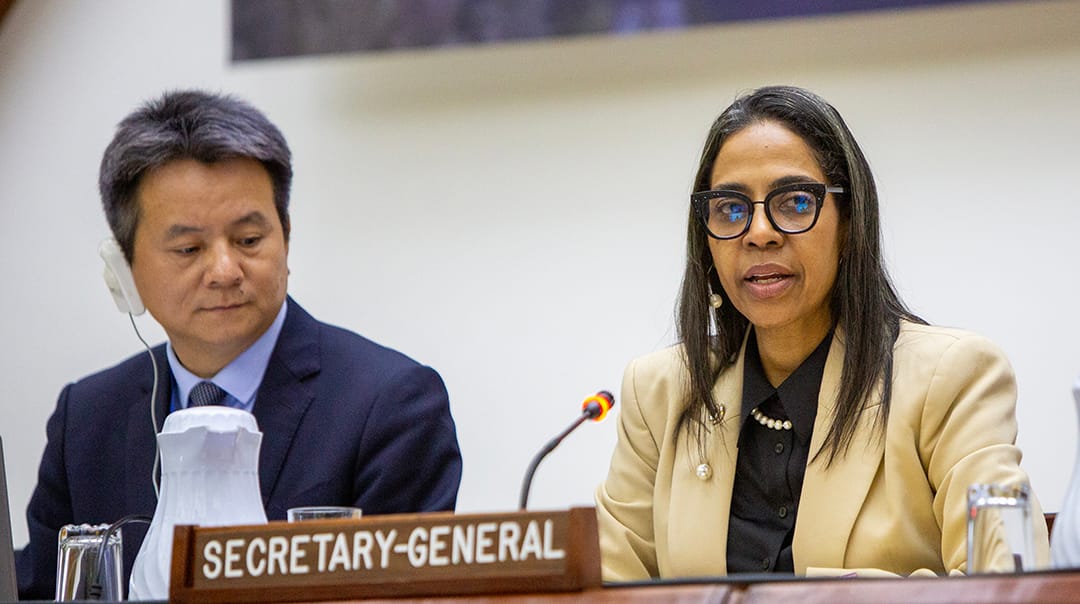International Seabed Authority Secretary General rejects accusations of bias and delays

The UN regulator responsible for deep sea mining has hit back at allegations that it has a bias towards conservationists.
In a statement Wednesday from the International Seabed Authority, the Secretary General, Leticia Reis de Carvalho, called the allegation naive and an affront to the countries that have been working to complete complex regulations.
In the statement posted to the ISA’s website, Carvalho stated:
I... reject any allegation that the Authority is in any way biased towards environmental groups, causing delays and a disadvantage to developing countries. This perspective is naive and disrespects the hard work of Member States in a highly complex negotiation.
It also misrepresents the very spirit of UNCLOS, which is to ensure that developing countries are fully heard and that their inputs have equal weight with developed countries who have already had full advantage over the world’s resources through their economic influence and technological prowess.
Regarding the fact that the regulations have been years in the making, the Brazilian Oceanographer who took office in January, said the ‘level of legal complexity of such work cannot be denied’.
She reiterated that the regulations are expected to be completed by end of 2025 and went on to state that:
The International Seabed Authority does not exist to obstruct progress. It exists to enable progress responsibly — equitably, sustainably and in accordance with international law.
Our collective work to finalize the Mining Code is not a bureaucratic exercise; it is the foundation for ensuring that any activities in the Area benefit all humanity, for present and future generations, while protecting the marine environment.
Urging the US to return to the multilateral table, she reiterated the ISA’s view that Donald Trump’s executive order was a breach of international law since it speaks to unilaterally mining areas that are outside of US waters.
The commercial recovery licence application submitted to the US government on Tuesday by Canadian Miner, The Metals Company, pertains to the Clarion Clipperton Zone, an area of the Pacific Ocean outside of any country’s jurisdiction.
Such parts of the high seas, referred to as the Area, are considered the common heritage of all mankind and any activity in these parts must benefit all humanity.
The concept of the Common Heritage of Humankind is so fundamental to the Convention that it constitutes the only provision that cannot be amended, nor can States Parties enter into any agreement derogating from it (Article 311, paragraph 6).
The Secretary General noted that the UN Convention on the Law of the Sea, which governs the Area and gives the ISA its authority, has established order in ocean governance, reduced territorial disputes, and safeguarded the high seas for all countries, even those not party to the treaty.
Despite the US not ratifying the treaty, it has been an observer at the ISA, contributing to technical discussions on the draft regulations and signing the 1994 agreement which gave rise to the regulator.
As ISA Secretary-General, I sincerely hope—and invite—the Government of the United States to channel its efforts toward developing a leading role in deep-sea science, technology, and seabed mineral resource activities through the institutional and legal frameworks established by the international community under the United Nations Convention on the Law of the Sea, a treaty that enjoys broad global recognition and legitimacy.
Carvalho said the treaty and, by extension, the work of the ISA have benefitted even the few states which did not ratify it, including the USA, and that it was always understood that every country would honour the maritime boundaries, navigational rights for naval and commercial operations, and general rules of the sea.
She urged the Trump administration to return to the multilateral table as a leader:
I would respectfully submit that the advantages for the United States in engaging through the international legal system are substantial and far outweigh the potential risks and challenges associated with unilateral action across the chain, from intergovernmental relations to investment security.
The ISA meets again in July for the second time this year in its milestone 30th session.
- Read our previous explainer: The International Seabed Authority Problem
- Read the Secretary General's full statement.
- For editorial comments or to submit anything related to deep sea mining, get in touch at [email protected]

